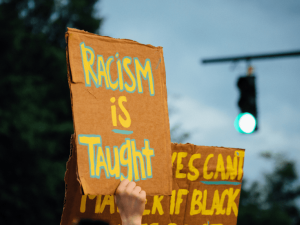

Research Expertise and Interest
health inequities, race/ethnicity, socioeconomic position, stress and health, place and health, social determinants of health, cardiometabolic risk, birth outcomes
Research Description
Dr. Nuru-Jeter is Professor of Community Health Sciences and Epidemiology. Her research focuses on race and socioeconomic health disparities and the measurement and study of racism as a social determinant of health. Her broad research interest is to integrate concepts, theories and methods from epidemiology and the social and biomedical sciences to examine racial inequalities in health as they exist across populations, across place and over the life-course. Dr. Nuru-Jeter considers herself to be more “exposure” than “outcomes” focused, which is consistent with her interests in examining social factors such as “racism” "gender", and “socioeconomic position” as exposures that serve as the foundation for the creation and preservation of health disparities across numerous health outcomes. She is interested in how these social exposures determine life experiences and opportunities differently for different social groups and how those differences become embodied and impact mental and physical health and well being. I employ a mix of quantitative and qualitative data for understanding racial health inequities, informing the measurement of social determinants and addressing concerns related to internal validity challenges in research focused on racial equity and health.
Dr. Nuru-Jeter is Principal Investigator of the African American Women’s Heart & Health Study, which examines the association between social and environmental stressors (e.g., racism stress, neighborhood racial and socioeconomic composition), cardiometabolic risk, biological dysregulation and cellular aging among African American women in the Bay area. She is also Co-Investigator of the Bay Area Heart Health Study which examines similar associations among Black men with particular emphasis on implicit racial bias. My research has included work on doctor-patient race-concordance; the intersection of race, socioeconomic position and gender on risk for psychological distress, disability outcomes, adult mortality, and child health and development; racial segregation; income inequality; and racism stress and a range of mental and physical health outcomes.
Her work has been published in top scientific journals including the American Journal of Public Health, American Journal of Preventive Medicine, Annals of Epidemiology, Annals of the New York Academy of Sciences and Psychoneuroendocrinology, where her paper examining racial discrimination, educational attainment and biological dysregulation among African American women was named Editor’s Choice. Dr. Nuru-Jeter's work has been featured on NPR, CBS, The Guardian, Essence Magazine, and the SF Chronicle, among others; and she has been called upon by the news media (CNN, MSNBC) to share her expertise. She has received numerous awards for teaching excellence and as a junior faculty member was honored with the singular award for Distinguished Graduate Student Mentoring at the University of California Berkeley.
Nuru-Jeter received her Bachelor of Science (BS) in Biology from the University of Maryland, College Park, her Master of Public Health (MPH) from the George Washington University; and her Doctor of Philosophy (PhD) from the Johns Hopkins University. She was also a Robert Wood Johnson Health and Society Scholar at the University of California, San Francisco and UC Berkeley.
In the News
Cultural Racism Worsens Health Inequities Between Racial Groups
Becoming An Antiracist School of Public Health
Stark racial bias revealed in police killings of older, mentally ill, unarmed Black men
Berkeley Talks: Fighting racism: How to restructure society so it’s open to all
Research on Racism and Public Health
Berkeley Public Health Is on the Frontline of Research into How Racism Affects Public Health
Straight talk: A conversation about racism, health inequities and COVID-19
Coronavirus: science and solutions
Does being a ‘superwoman’ protect African American women’s health?
Study: One in five chronic disease patients report discrimination in health care
Greater Income Inequality Linked to More Deaths for Black Americans
Income inequality matters for everyone, but it matters differently for different groups of people. Researchers linked greater gaps in wealth to more deaths among black Americans, but fewer deaths among white Americans.










